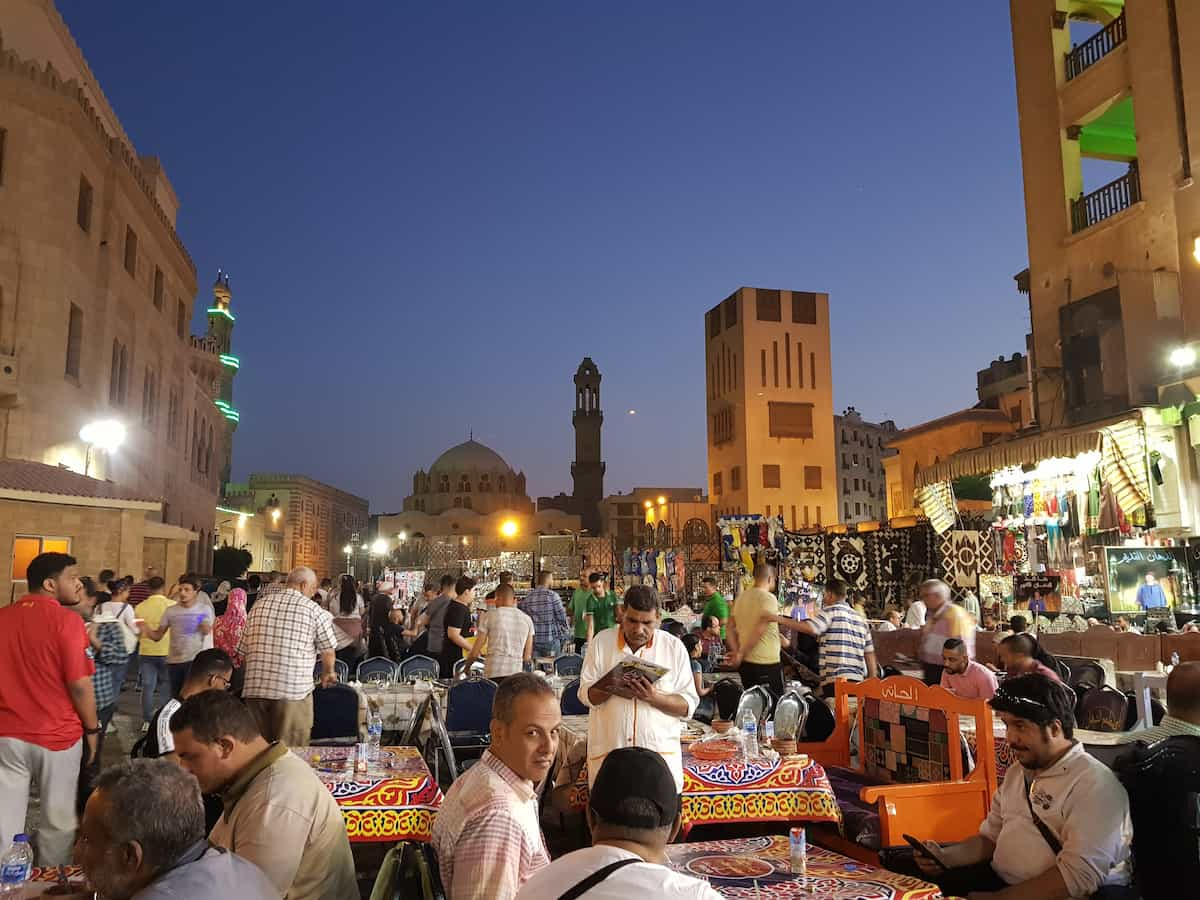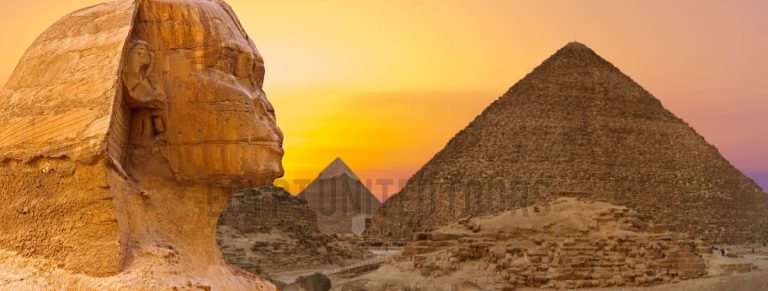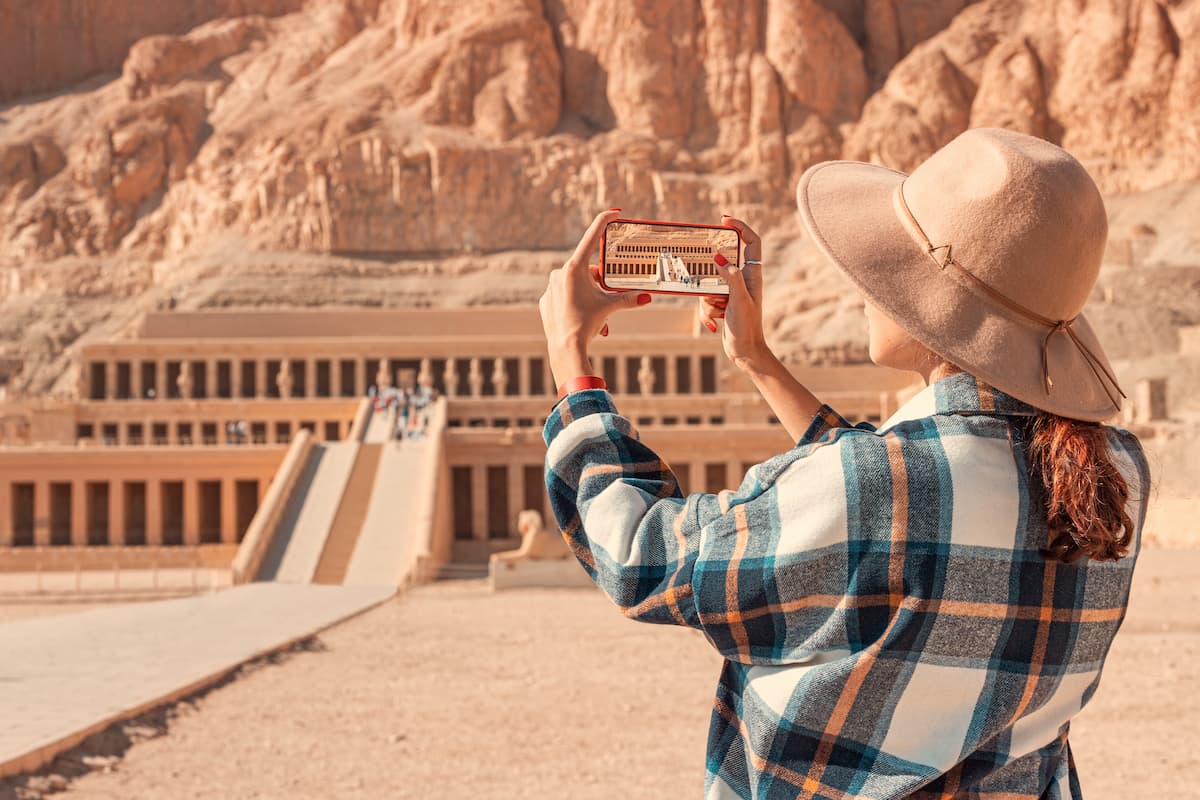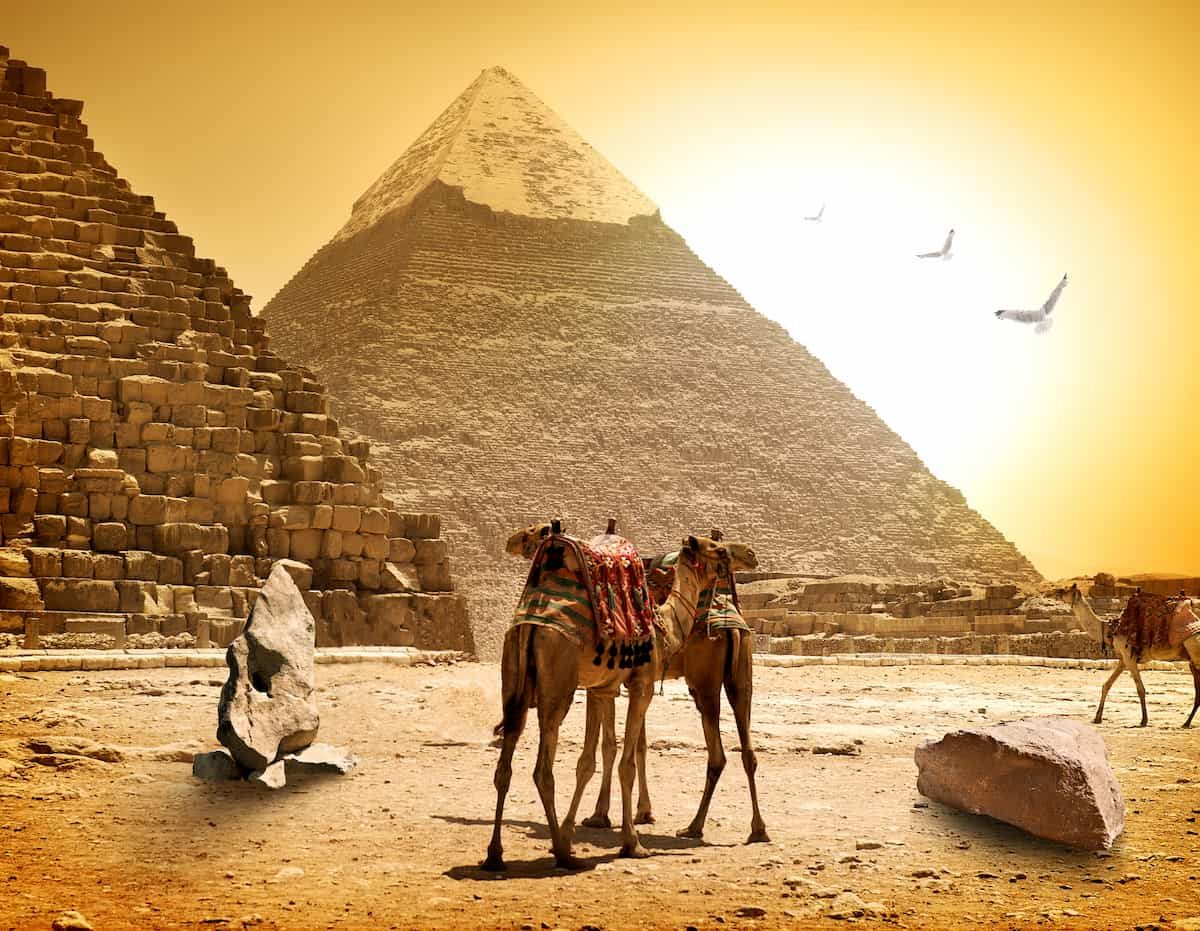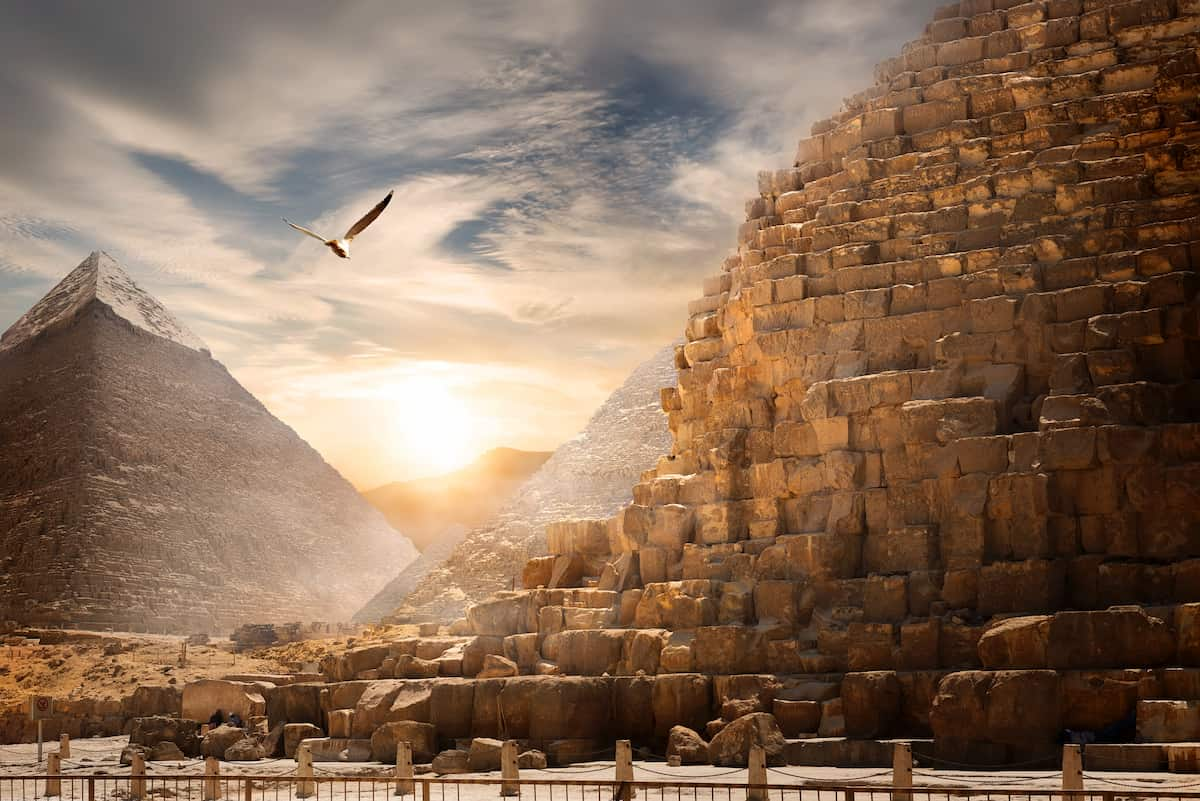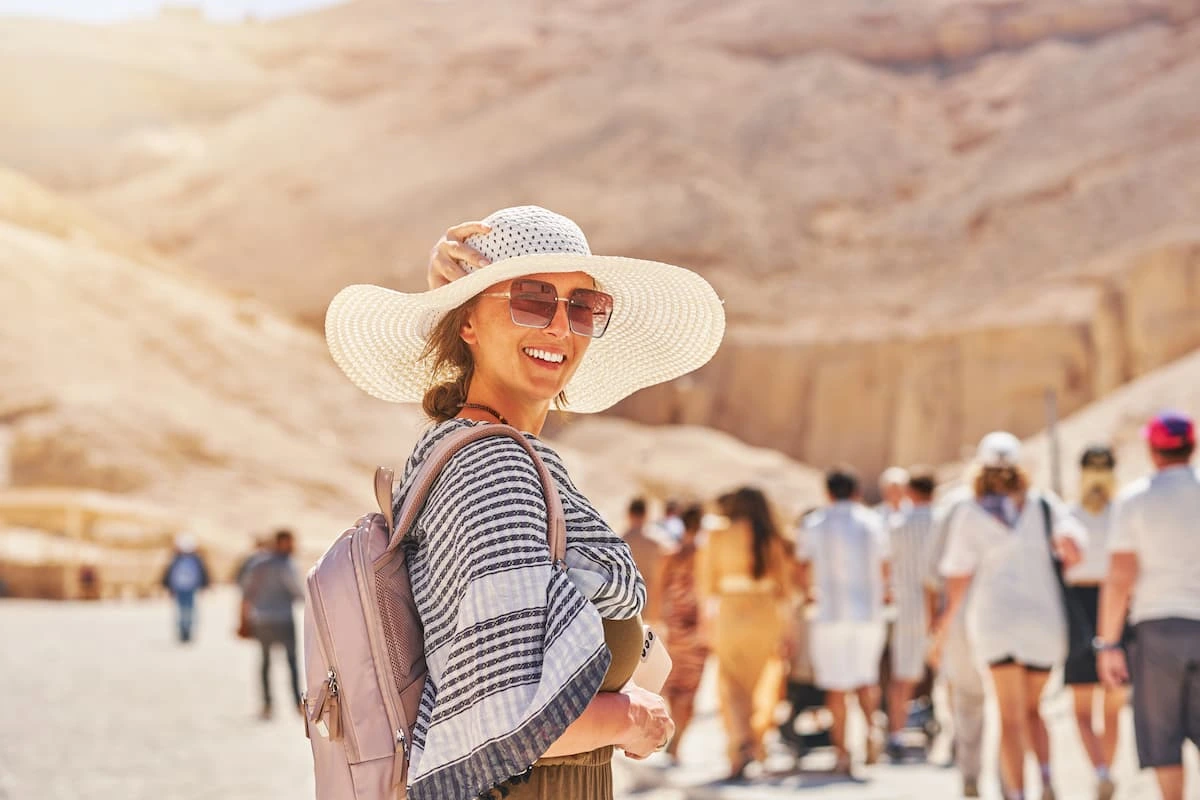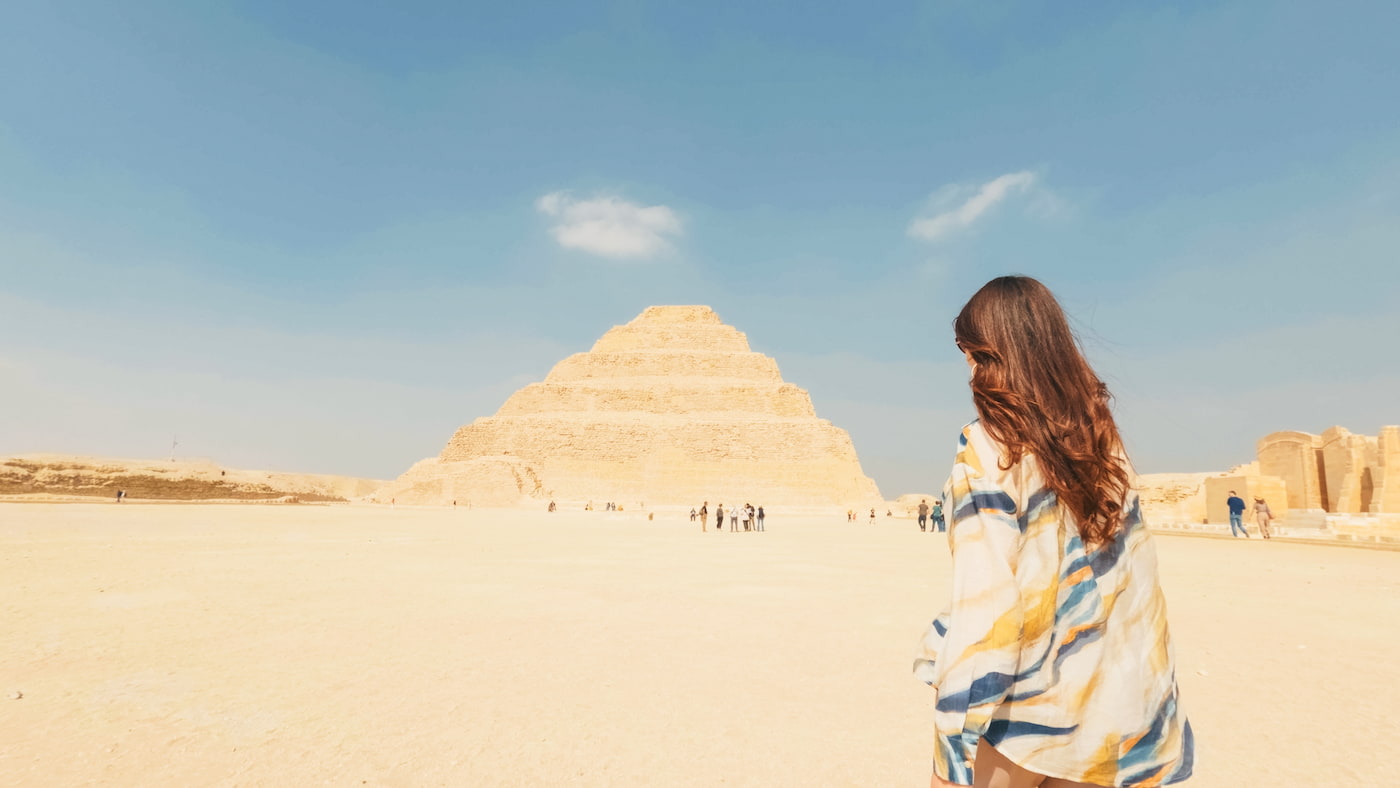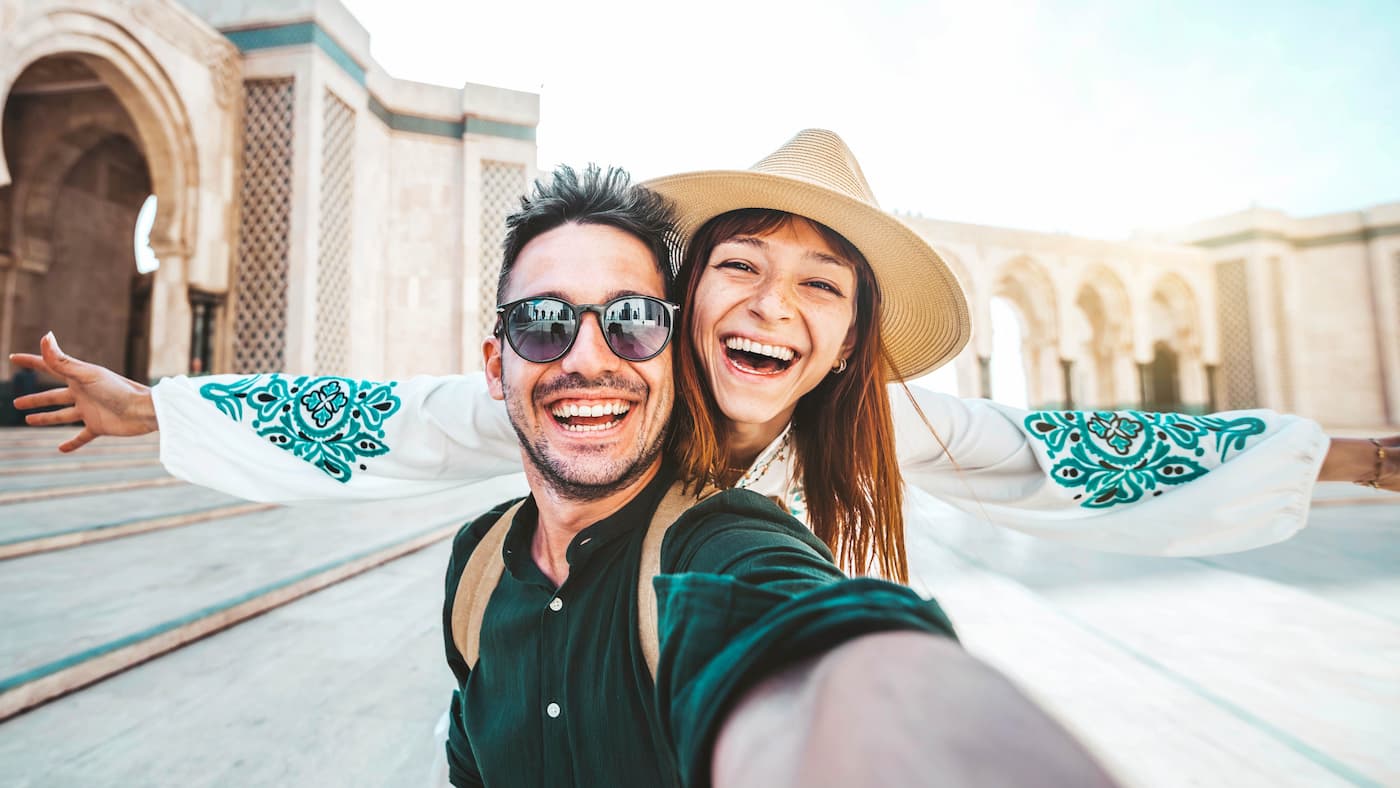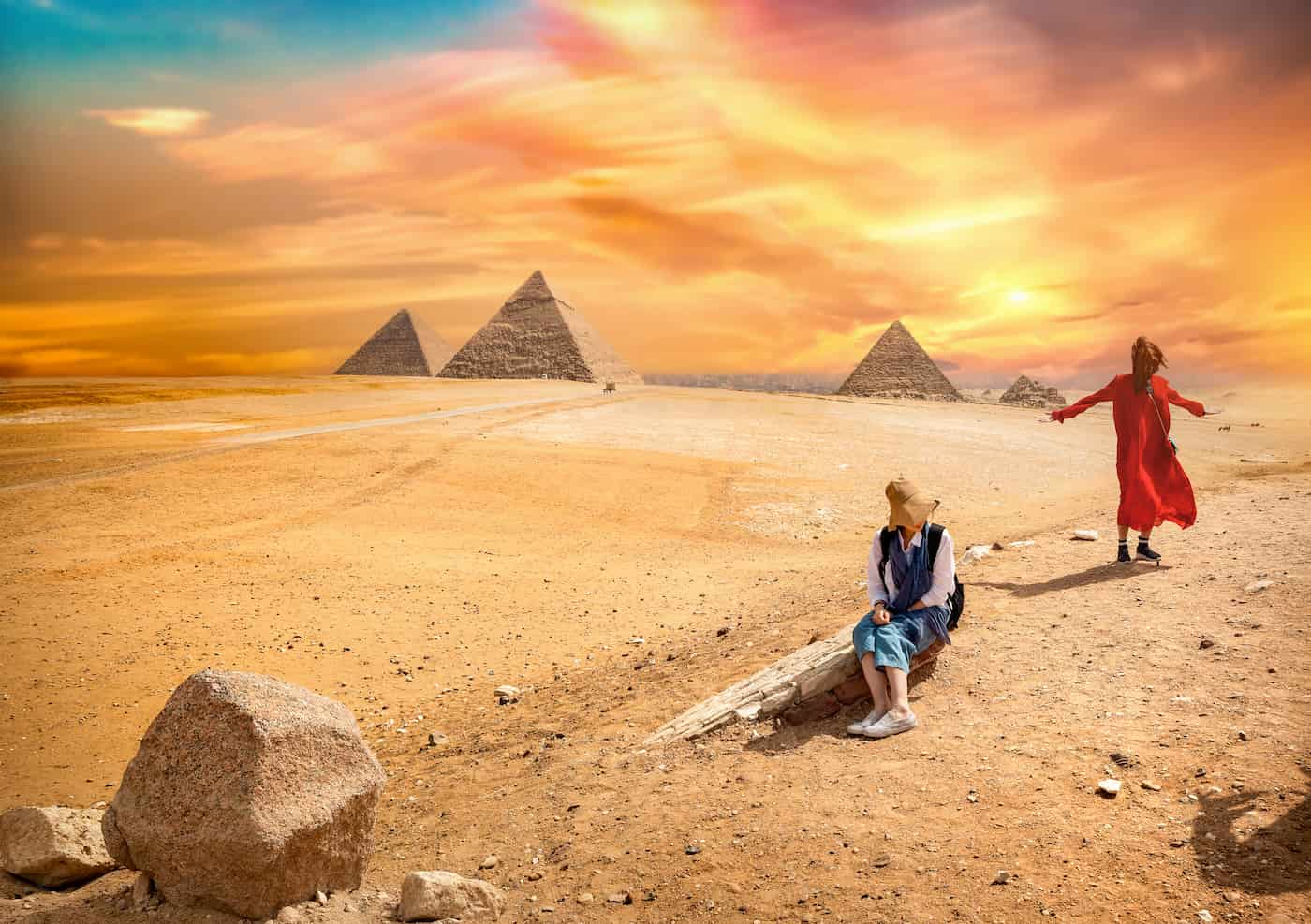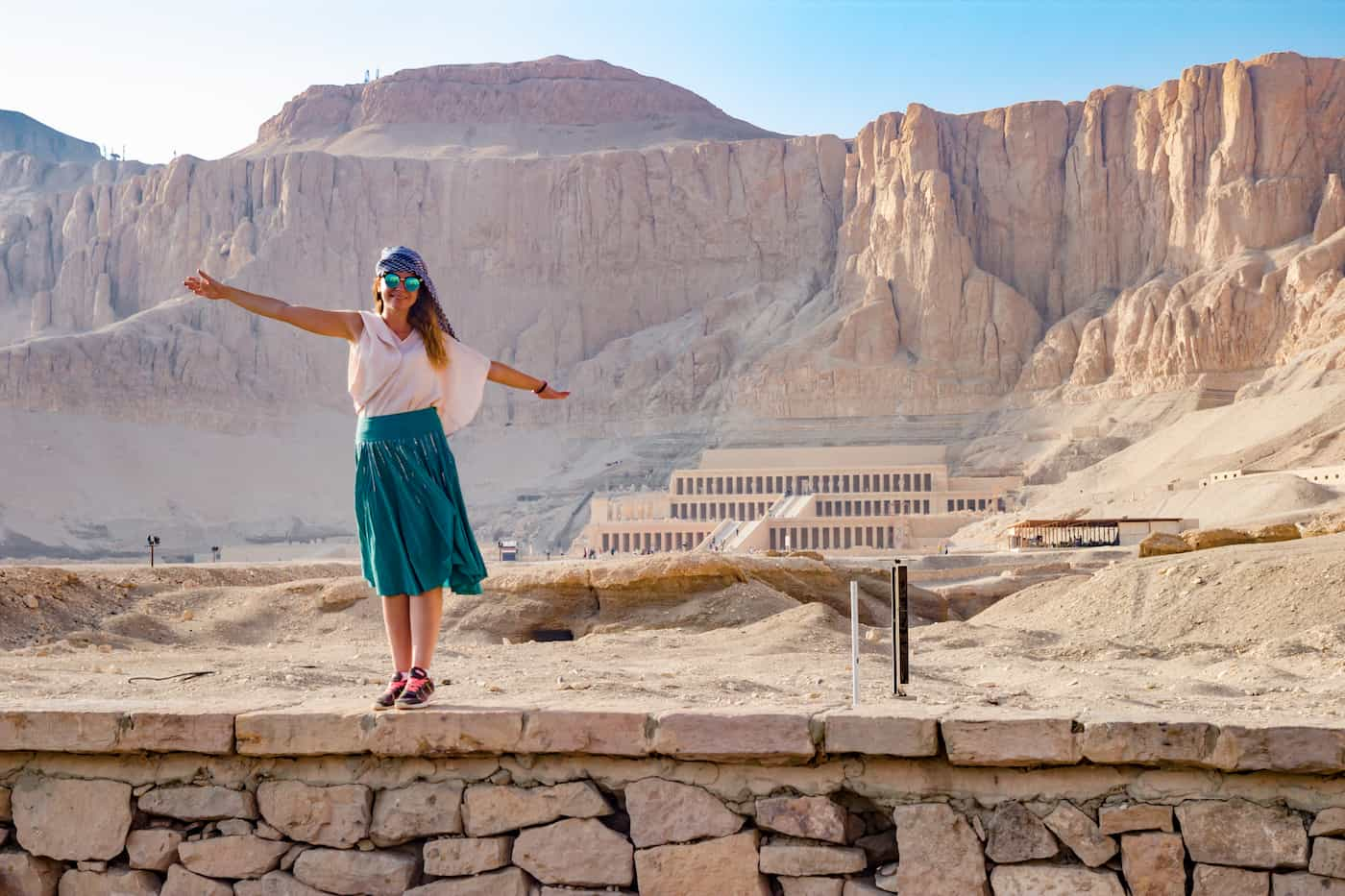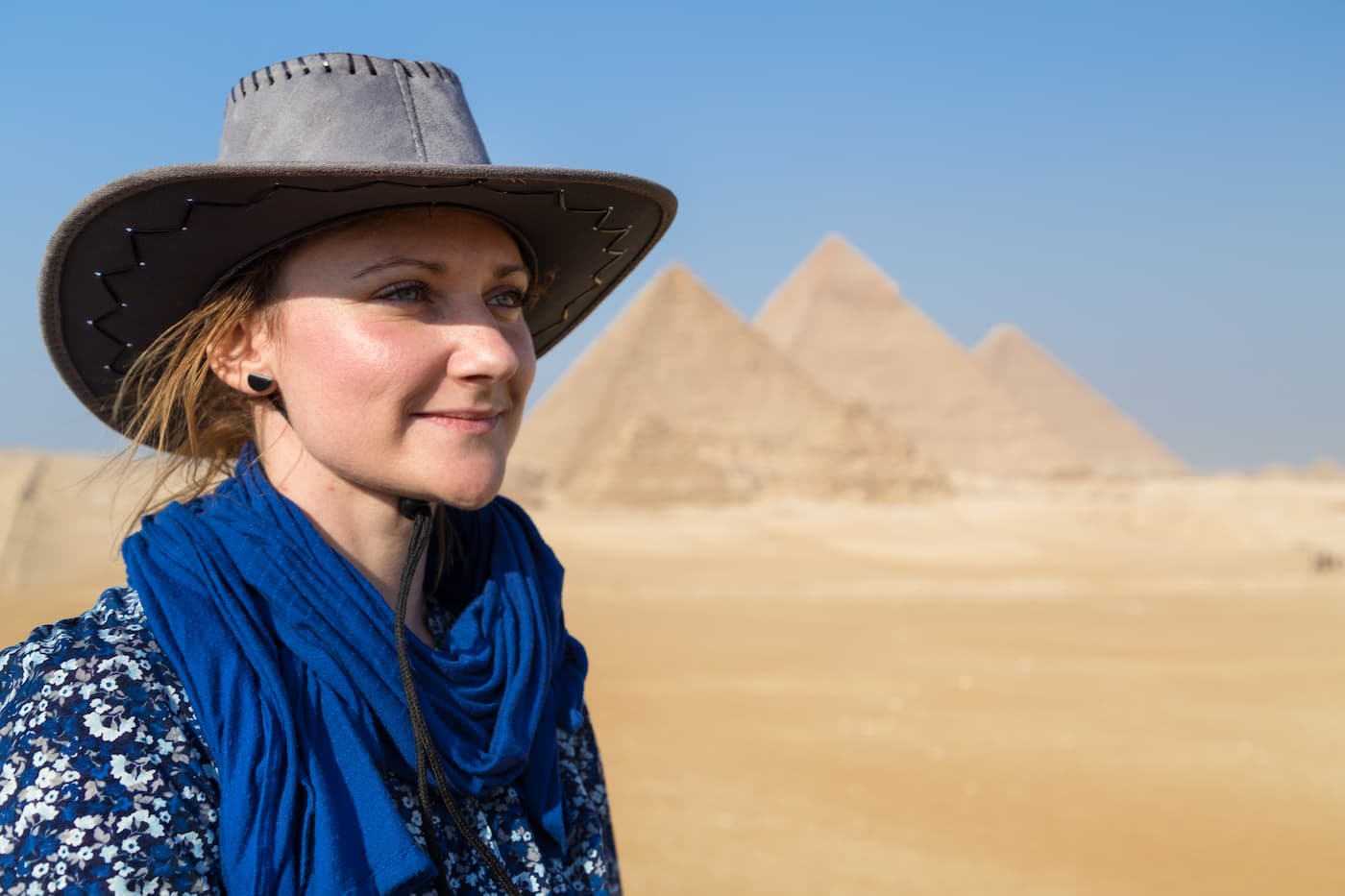For many years, Egypt stood tall with many changes. You can see this from reading about its history and how it was essential for the outside world, especially in wars and logistics. Even though Egypt had faced many changes that didn’t affect its customs, traditions, and Egyptian cultures. That creates unique Egyptian traditions that have inspired the whole world throughout history. Furthermore, these traditions and customs generate the core of Egyptian society and draw features of a great civilization, which provides an excellent experience for every traveler. Moreover, the culture of ancient Egypt was not about building and memorizing events; no, these ancient civilizations gave us what is needed to follow the same road, believing these traditions and customs would define the future.
We have prepared and collected the best customs, traditions, and cultures you should love and respect as a traveler to Egypt. Egypt had the most impressive culture and civilization throughout history; of course, this is important for drawing the features of any civilization. But what is more important is the habits, traditions, and customs these great people left behind. They are telling you if you follow this equation and do your best, you can become more than you think. Therefore, the ancient Egyptians were able to rise and evolve and become one of the most important, intelligent, and advanced civilizations the modern world knows today. Moreover, Egypt is now a live, mysterious box that is still unsolved; there is much you can see and learn. Lastly, Egypt still exports its ancient ceremonies, unique Egyptian traditions, and the history of a great Egyptian civilization.
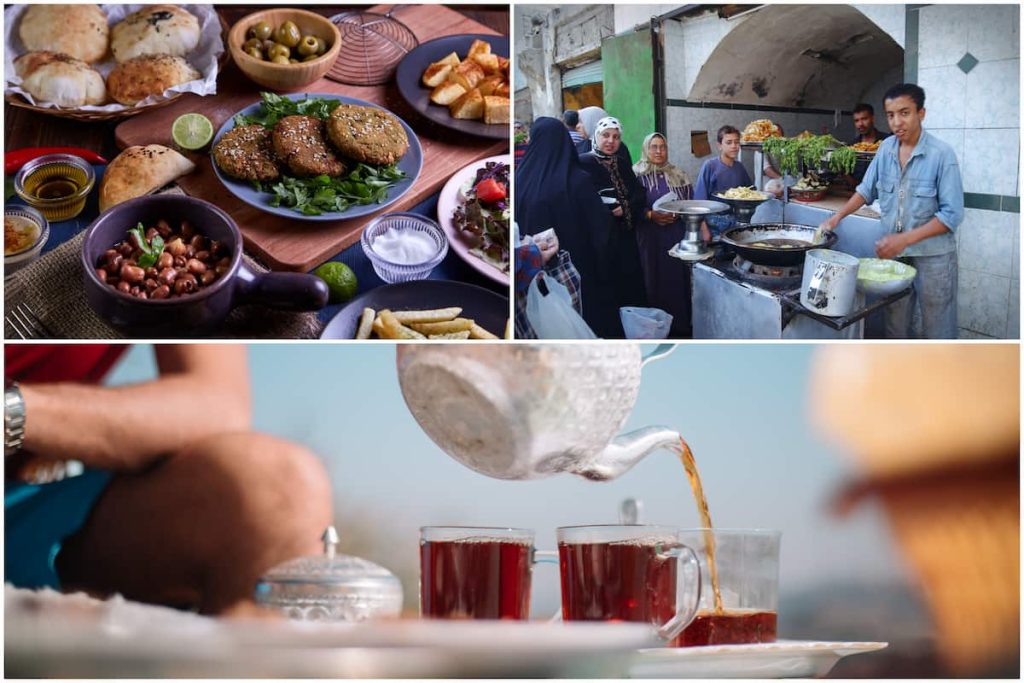
1. Ancient Egyptian Festivals Traditions
Ancient Egyptian festivals were known as “Heb.” They were held throughout the year and marked on the Ancient Egypt calendar to worship and thank the Egyptian gods and ask for their forgiveness. These traditional festivals included sacrifices, offerings, and celebrations to honor the gods. However, these festivals also had other intentions, such as showing that the Gods they followed were genuine and existed, which provided safety and recreated their religious intentions. In addition, it builds more connection and trust in the ability of these gods to protect their people from harm or threats.
We saw that the ancient Egyptian festival traditions and customs were rooted deeply in their religious and ancient ceremonies, as well as Egyptian cultural traditions day by day. Moreover, we can see this in different ways, like their way of drawing and curving on walls, using papyrus for writing, and much more. Therefore, ancient Egyptian history has a lot of secrets waiting to be revealed. We have gathered some of the most important ancient Egyptian festivals and traditions to go more in-depth about how the ancient Egyptians used to celebrate.
-
Opet Festival:
This festival is held annually in ancient Egyptian traditions, especially in Thebes, today known as Luxor. It is considered one of the most important festivals in ancient Egyptian culture. This festival celebrates the marriage of Amun and Mut. It lasts several days and involves processions, hymns, and feasting. Lastly, the statues of the gods Amun, Mut, and Khonsu were transported from Karnak Temple to Luxor Temple.
-
Wepet Renpet (New Year Festival):
This festival is more special as it marks the beginning of the new year in ancient Egyptian history. Furthermore, the Wepet Renpet (New Year Festival) also marks the flooding of the Nile and the start of the agricultural cycle. Therefore, the Egyptians used some rituals to ensure the continued fertility of the land.
-
Sed Festival:
This one is a bit weird but also crucial for the ancient Egyptians. In this festival, the pharaoh takes a running race in front of his people to demonstrate his power, physicality, and fitness. Moreover, the pharaoh celebrates his 30th year in power, involving elaborate ceremonies and processions.
-
Feast of Min:
This festival was made for the god Min, who represents fertility. It also celebrates the fertility of the Egyptian land, including offerings, processions, and feasting, often focusing on fertility rites.
-
Feast of Hathor:
This festival is for the goddess Hathor, the goddess of love, beauty, and music. In addition, this festival was celebrated in Dendera, and some of the activities included music and dance, which reflected the love and happiness the ancient Egyptians had.
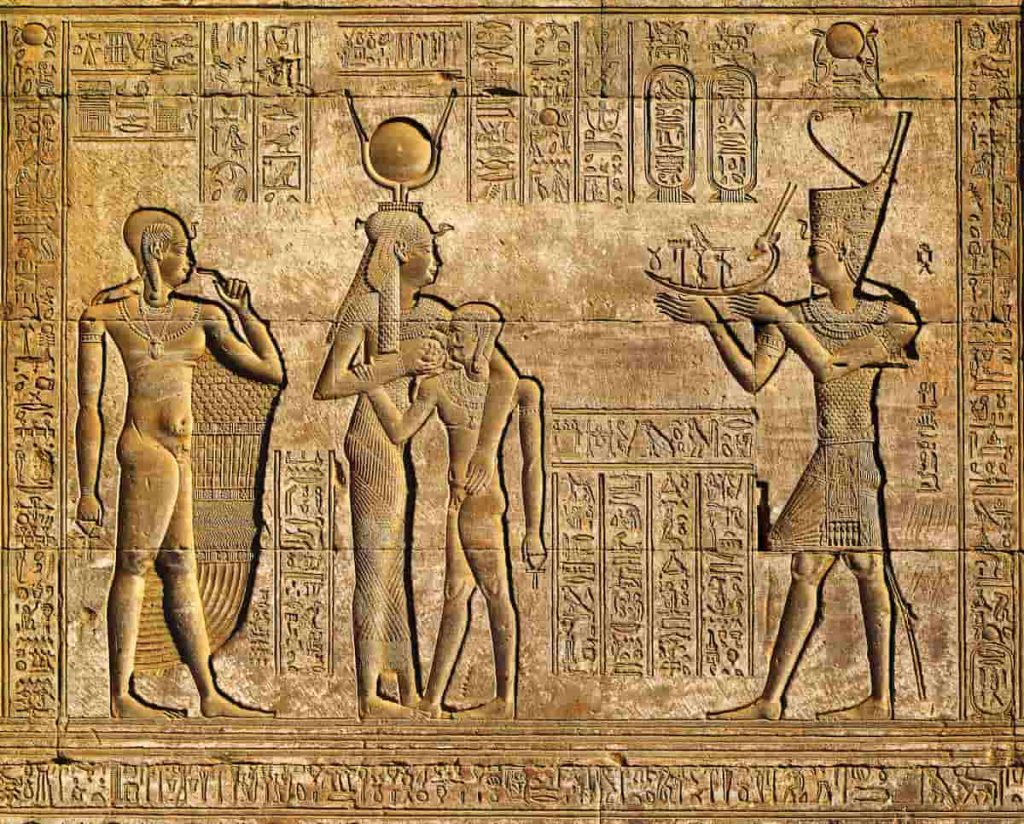
2. Traditional Egyptian Clothing
It has a clear manifestation in art and cultural heritage from the time-tested history of the Land of the Nile; this is the traditional wear of Egyptians. In fact, a galabeya for men is usually a long and wide robe, most of which is woven out of cotton or linen to afford maximum incredible comfort in hot climates. The tarboosh, a headscarf, and the djellaba, a very long-draping garment that conceals the body, are traditional female headwear. These headwear are usually vibrantly and richly embroidered and colored, thus showing the artistic talent of Egyptian artisans. They are functional, but they are also forms of identity and old ways of life of Egyptians, therefore feature magnificently in the more excellent picture of Egypt’s cultural scene.
3. Egyptian Food Customs
Egyptian traditions, the cuisine tells the rich story of different flavors and traditions shaped by the myriad history of Egypt. Indeed, food customs in Egypt are very much essential to Egypt‘s social fabric. A meal in Egypt is usually found to have been shared by everyone, indicating exceptional family and community belief in life.
Breakfast (Fatoor) is typically bread, cheese, and eggs huddled with tea or coffee, while lunch (Gadaa) is the most important meal. Examples of food for lunch include Koshari, which consists of rice, lentils, and macaroni; Ful Medames, which is prepared from stewed fava beans; and Molokhia, a stew of greenness made from green leafy vegetables. Egyptian dinners are usually lighter than lunches. They include salads, grilled meats, and an assortment of side dishes, not to mention the endless variety in Egypt’s diversity-capturing hospitality tradition. Lastly, Egyptian customs and traditions are still in the blood of all Egyptians till now.
However, one of the most remarkable Egyptian traditions and customs occasion is the month of Ramadan, when the term Iftar means something that would otherwise be meaningless, such as during the usual Iftar or fast-breaking time, during which one tries to hammer out the food or meal associated with the event. Tamiya, Kunafa, Qatayef (stuffed pancakes), and many very popular items are some things a person or an Egyptian can assume to be present in the communal event. Indeed, Egyptian cuisine constitutes the art of eating and sharing the experience of eating, making it a cultural experience in every culinary encounter.
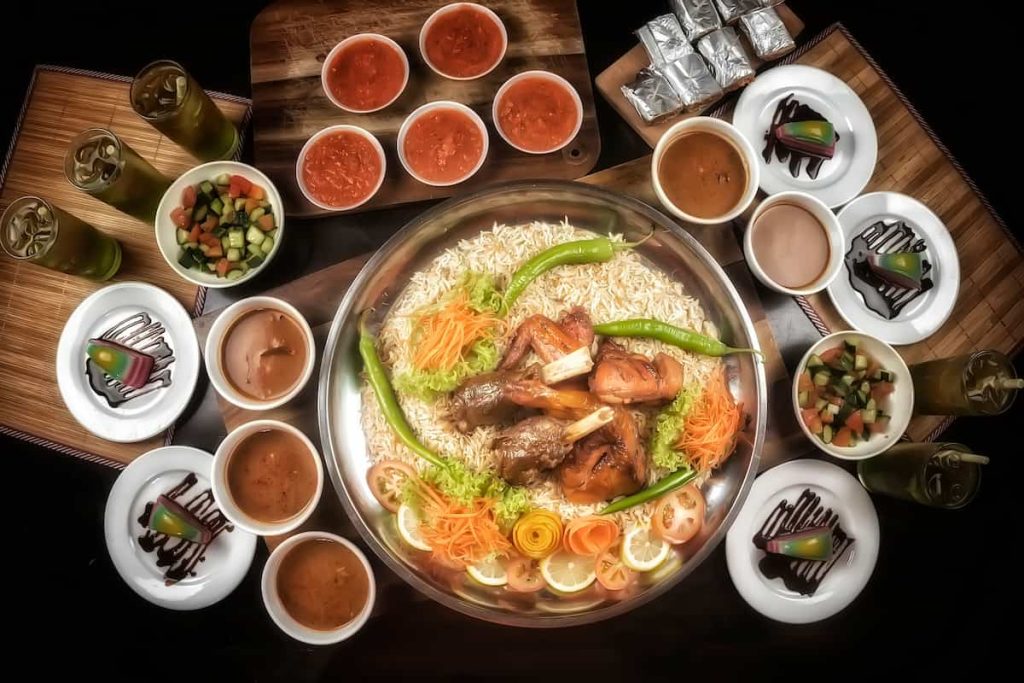
4. Wedding Customs in Egypt
Egyptian weddings have splendid high decorum and many cultural traditions that preserve their deep roots in that society. Usually, this process begins with a formal engagement, whereby the groom’s family visits that of the bride. They negotiate and discuss the marriage terms, mainly concerning the mahr (dowry). Then, there follows the engagement, which is celebrated by having a party accompanied by traditional music and dance.
Usually, the wedding ceremony takes place in a mosque or a decorated hall. The bride is mainly dressed in a white wedding dress, a custom borrowed from Western traditions, although some brides prefer the traditional Egyptian dress. The grooms can either wear a galabeya (long free-hanging robe). Then, festivities will include a zaffa, or wedding procession, in which drummers and dancers escort the husband and wife to the place of merrymaking. The reception is an event filled with food, music, and dancing. And, of course, sweets like basbousa and kunafa should be served.
At events, each guest has a present for the married couple. Guests bless newly wedded couples with good wishes. The unique features of the marriage are reflective of the culture. One such event is the henna ceremony, where the bride’s hands and feet are decorated with henna designs. It brings more uniqueness and joy to the ambiance of marriage. They celebrate not only the union of a man with a woman but also that of two families, thereby further bonding the social fabric of Egyptian society. These customs and traditions have been passed down through history, reflecting the rich ancient roots of Egypt and its cultural heritage.
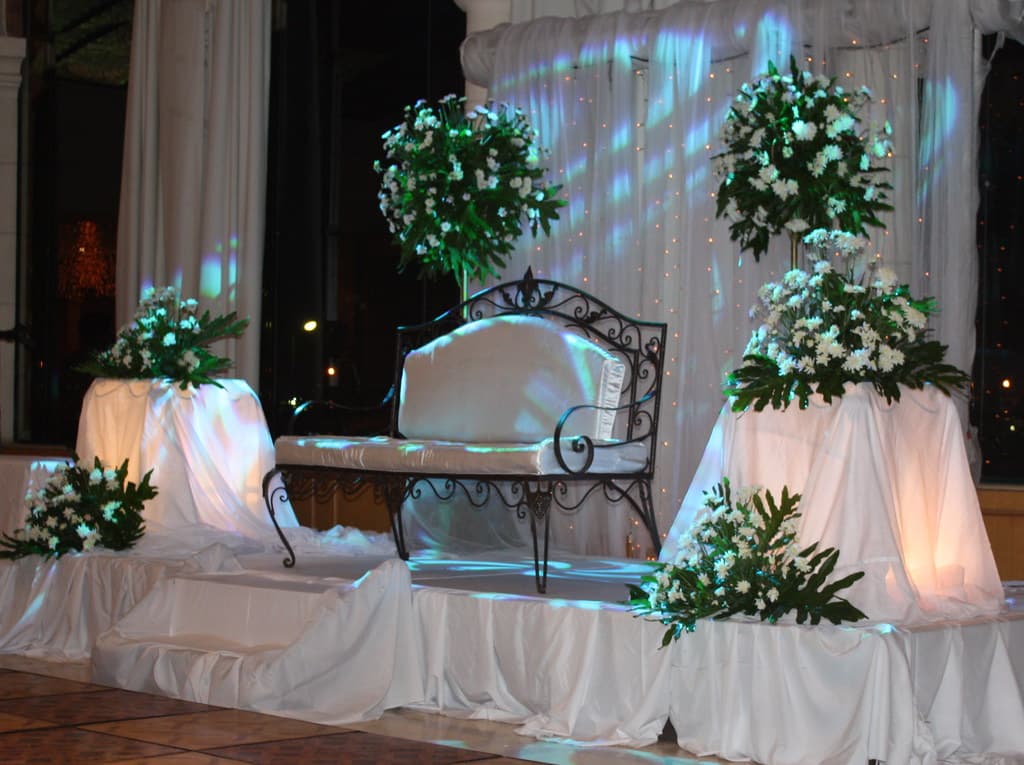
5. Funeral Traditions in Egypt
Funeral customs have their roots in ancient and modern cultures in Egypt. Even after they believed in an afterlife, they believed in survival and thus preserved the dead by mummifying them. They constructed rich tombs with rituals that facilitated a smooth transition into the afterlife with offerings and prayers for the past.
The Mummification Process In Anceint Times
In ancient times of Egypt, the Egyptians believed in the afterlife and the resurrection of the body. This idea was founded on what they saw every day. Every evening, the sunset was in the west and rose in the east the next morning. The moon grew and faded as new life sprang from grains sowed in the dirt. Everything was trustworthy as long as order was maintained, and life after death was possible if specific circumstances were satisfied. For example, the body had to be mummified and placed in a fully equipped tomb with everything required for life in the afterlife. Removal of the brain, possibly using a whisking process to cause the brain to liquefy.
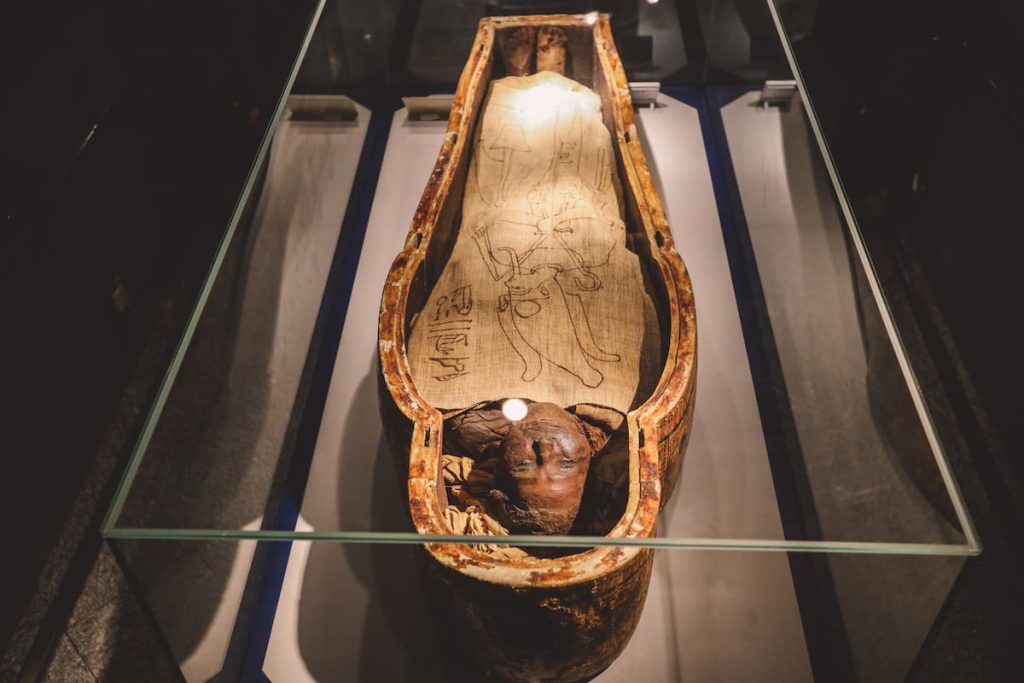
Modern Days of Traditions of The Egyptians Funeral
This modern Egypt does not perform mummification but burial practices that imply other cultural meanings affiliated with Egypt. Most funerals in Egypt are somber and mostly family-oriented. A funeral—everything that has to do with it—from mourning to offering respects, all looks at how one goes about it. The deceased is generally washed and then wrapped in a plain white shroud. Prayers will then be made for the dead (Salat al-Janazah) at a local mosque. Family and friends have gathered—as shown in the vibrant yet informal community involvement, which seems to hug the bereaved family during this time of mourning.
The mourning could last a few days, during which they wear black and cook particular dishes. They usually visit other relatives’ graves and leave flowers and prayers for the deceased. These customs fall within deep-rooted traditions in which Egyptians respect and care for their loved ones both in life and death. Therefore, these customs add up to the great fabric in which Egyptian society is embedded.
6. Egyptian Hospitality Customs
Egypt has always been a unique country in all fields of life, especially hospitality. Moreover, the Egyptians are very generous. The Egyptian people have this deep down in their blood. It is unlike any acquired habit, but they were born with it. In addition, the people of Egypt are very well known for their friendly and lovely behavior with tourists. Therefore, they are always ready to provide any service. This traditional hospitality is natural: when visiting someone’s home, the guests are well greeted and welcomed and offered tea or coffee. Therefore, this is a symbol of welcome and respect. Moreover, it is a choice; you can bring a small gift like flowers or sweets. Remember, it is preferable to do so, but not mandatory.
When someone invites you to his home, you should know you are invited to eat. Yes, this is a usual tradition that happens every day. When visiting, meals are often served on large plates for everyone to eat, which shows the importance of this community. Guests are treated with love and respect, and ensuring they are comfortable is considered a duty. Therefore, tourists love Egyptian hospitality and value it. Lastly, this tradition of hospitality is not just a Regular Thing. Still, it is a fundamental aspect of Egyptian society that happens every day and represents cultural values of generosity and kindness.
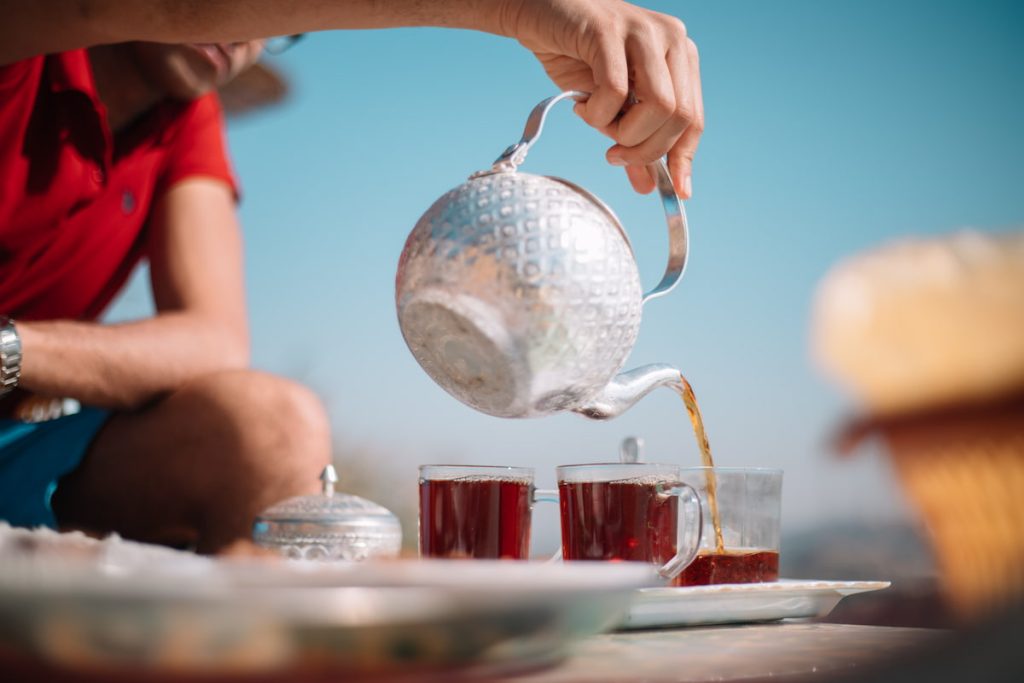
7. Egyptian Religious Traditions
The cultures, religions, and traditions of Egypt are tied to the legacies brought from a very long history, whose history is rich and welcoming. Rituals such as venerating gods and deities, such as essential days like Ramadan and Pharaoh’s Coptic festivals, are undertaken mainly by Egyptians or performed in Egypt. It serves a spiritual purpose and is binding in the social set-up, ensuring continuity and identity. Therefore, there are many phrases one can say about these traditions that serve well with modernity and globalization, which are still inherited by most Egyptians and go along as a part of daily life and special occasions to preserve the essence of their culture for posterity.
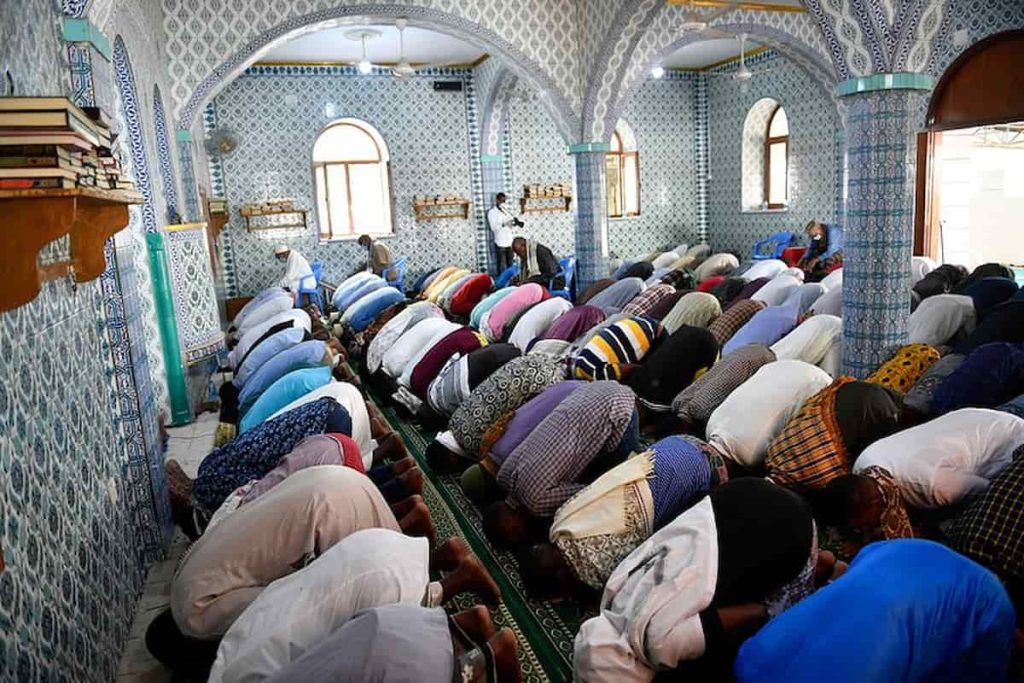
8. Family Roles in Egyptian Culture
Egyptian family bonds are so highly prized that Egyptians often stay connected with their far relatives. Typically, a family follows a patriarchal structure. An elderly male member or father heads the family and handles all the major decision-making, thereby running the house. His spouse manages the house and rears the children.
Elders are held in great honor by Egyptians. Small children are taught to honor their parents and elders. Events and occasions such as marriages and festivals are of great importance in bringing them closer together and preserving the values of the family.
Older women in Egyptian families are often efficient in keeping houses and bringing up children, even though they have undergone quite a bit of metamorphosis in recent years, with more women proving their mettle by entering the male domain of working and receiving higher education. Notwithstanding these changes, the family remains Egyptian society’s most vibrant and revered institution. It is testimony to the magnitude of culture and history attached to this institution. The family is the core that houses and harbors the essence of an Egyptian in the wall of society, firmly attaching all to traditions and customs. Events and occasions such as marriages and festivals are of great importance in bringing them closer together and preserving the values of the family, reflecting the deep cultural roots and the rich history of Egypt.
9. Egyptian Art and Music Customs
Egyptian art is rooted in the culture and history of a country of thousands of years. Ancient Egyptian culture and traditions art is known for its monumental structures, from Giza pyramids to Huge Temples, richly covered in hieroglyphics and reliefs that tell their story of gods, pharaohs, and everyday life and culture. Other conventional art forms are pottery, jewelry, and sculpture, which use symbolic and stylistic bases to stress clarity and permanence. Modern Egyptian art and culture have continued with this legacy, blending ancient techniques with contemporary influences that show a new and ever-changing cultural space.
Egyptian music customs: Egyptian music has a long and diverse history. Typical traditional instruments include the Oud (a pear-shaped stringed instrument), Ney, and Riq (a type of tambourine). Traditional music is usually associated with religious and ceremonial events or social gatherings, whilst folk music, especially from the Upper Egypt region, preserves certain original rhythms and melodies from generation to generation. Modern Egyptian music, such as Shaabi or Maaqed, includes traditional musical attributes and the most contemporary sounds to appeal to broad population segments while preserving a powerful cultural identity.
Egypt’s intangible heritage includes art and music, essential for emotions. These have linked the past and the present, ensuring that the culture has continued to thrive.
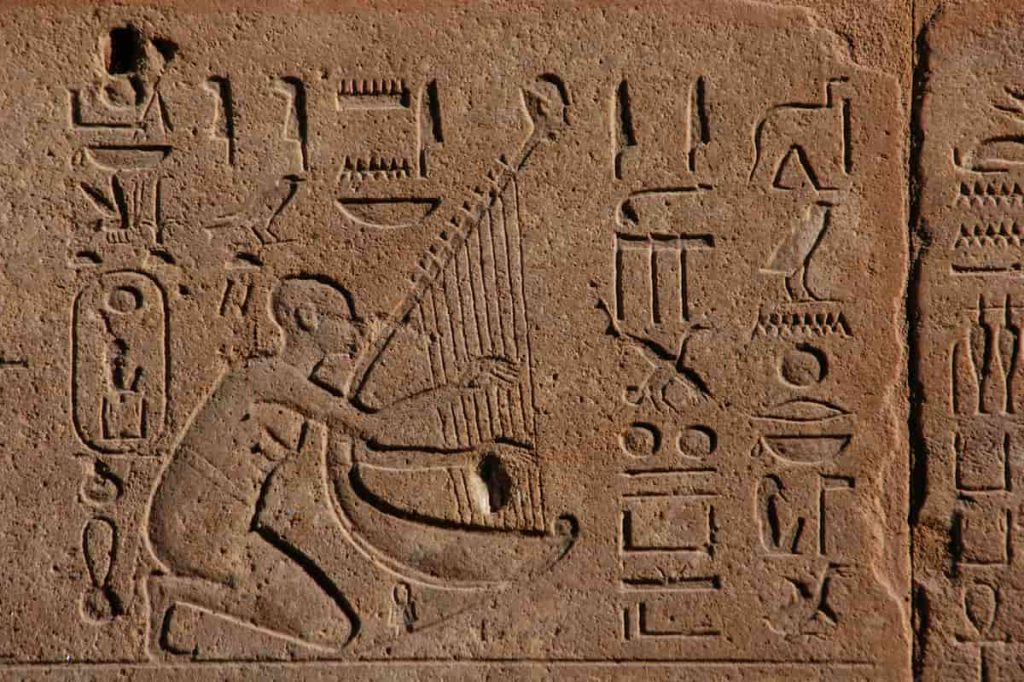
10. Egyptian Holiday Celebrations
Egyptian holiday festivities are entrenched in traditions and culture through the country’s highest historical and religious heritage. One of the most unique and ancient celebrated holidays is Sham El-Nessim (Smelling the Breeze), dating back to over 4,500 years, and celebrated the day after Coptic Easter. Today, Egyptians flood into gardens and parks, munching picnic lunches, often accompanied by traditional foods such as feseekh (salted fish), colored eggs, and termis (lupini beans). In this event, old and new blend seamlessly, coming forth with spring and new beginnings.
Another prominent holiday is January 7 (Coptic Easter). This day involves midnight masses, family gatherings, and feasting on roasted goose and other festive dishes. In this case, happiness is indirectly associated with deep religious reflection and acceptance of Christianity’s riches in Egypt. Lastly, it is still celebrated, not modern Egyptian customs and traditions.
Consequently, Eid al-Fitr and Eid al-Adha are some of the country’s significant Islamic celebrations. Eid al-Fitr marks the end of Ramadan, the Holy month of fasting, and is celebrated by prayer, visiting relatives, and open-air feasting, including delicious sweets and pastries. Eid al-Adha has similar traditions, such as prayer, gathering, and eating. Still, it also celebrates Ibrahim (Abraham) ‘s willing sacrifice of his son in obedience to God.
Modern-day Egyptian customs, traditions, and celebrations of ancient Egyptian heritage also play a significant part in the cultural calendar. For example, the Valley of the Festival in Luxor pays tribute to the souls of yesteryear’s pharaohs and gods with reenactments, parades, and performances. These festivals offer lively combinations of ancient customs and traditions.
Conclusion
Thus, Egyptian customs and traditions, as it may seem, have formed into one tapestry from thousands of years of history and ancient wisdom. Through this long duration, the much-valuable arrivals of these traditions have become the heart of Egyptian society, giving its unique culture that always inspires and mesmerizes strangers worldwide. Whether it be elaborate ritual ceremonies set in ancient Egypt, a dynamic cultural day associated with the whole nation, or even the warm hospitality extended by an Egyptian, such acts now give tourists a good travel experience—even an authentic one. With care and being part of these traditions and customs, a tour to Egypt caters to a rich experience even on these things in the priceless legacy of one of the world’s greatest civilizations.

